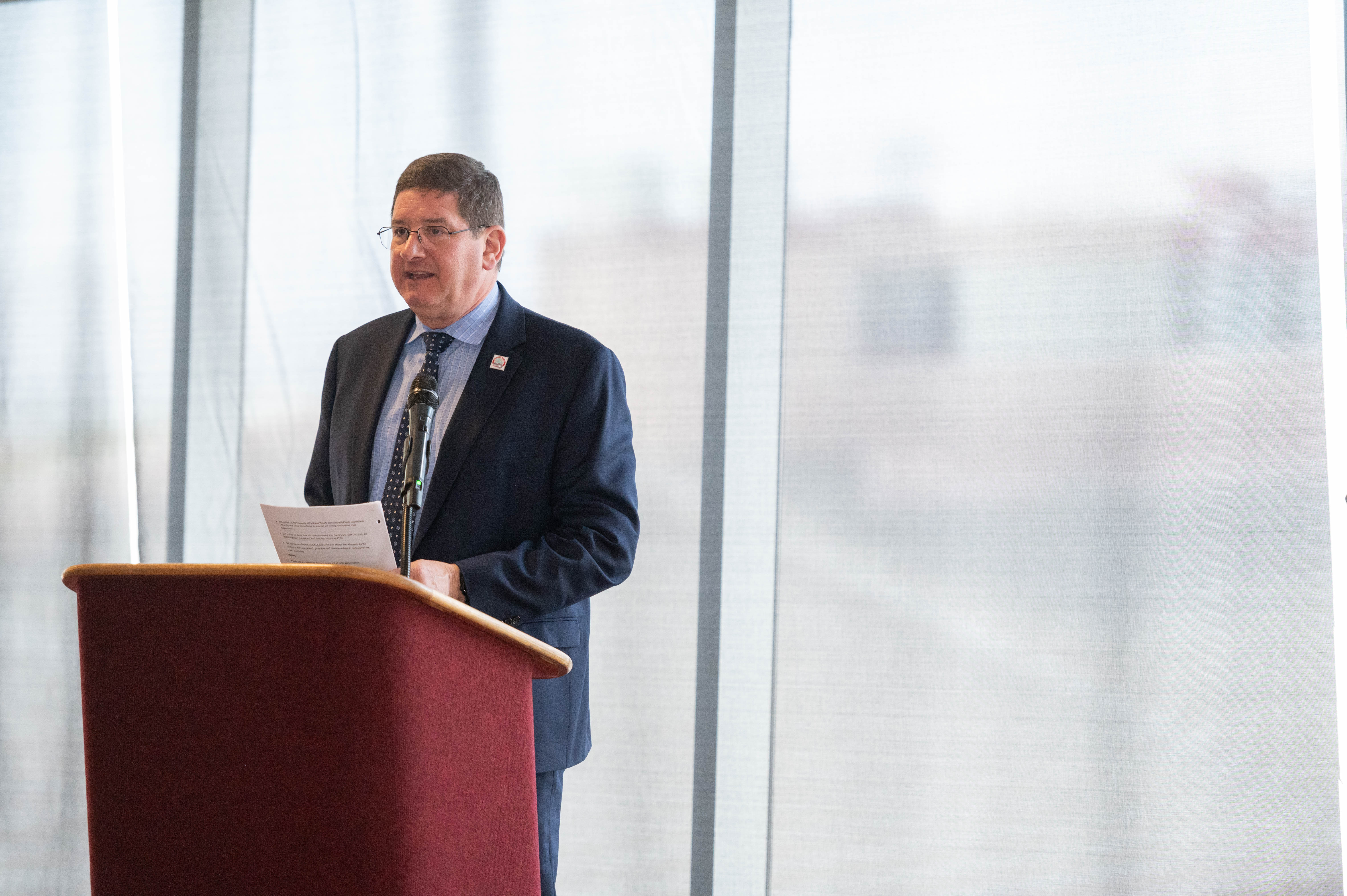The U.S. Department of Energy’s Office of Environmental Management has awarded a $4.8 million grant to New Mexico State University to expand research and workforce skills in the area of radioactive tank waste management.
Over the course of three years, the grant will support the NMSU’s College of Engineering, Business and Arts and Sciences, as well as grant partners from the University of Texas at El Paso, Georgia Institute of Technology, Savannah River National Laboratory and Savannah River Nuclear Solutions.
NMSU Chemical and Materials Engineering Associate Professor Catherine Brewer is the lead for the new project titled “Evaluating New Materials and Processes for Radioactive Tank Waste Processing: Workforce Development in f-Element Chemistry, Nuclear Chemical Engineering, and Supply Chain Management,” also known as the NuChemE Pipeline.
“The goal of this project is to give students the knowledge, experiences and person-to-person interactions to help them consider and be prepared for careers with the DOE,” Brewer said. “Part of that preparation is familiarity with the f-elements (elements in those two rows below the Periodic Table like uranium, plutonium and the rare earth metals) and the steps of the nuclear fuel cycle, from raw material mining through management of spent nuclear fuels.”
Satyajayant “Jay” Misra, College of Engineering associate dean of research, said the grant will give students experience that will be needed in future careers.
“This important project is another example of the researchers at the College of Engineering leading an interdisciplinary, multi-university team to make significant research impact and meet the critical workforce needs for the future,” Misra said. “The multidisciplinary environment in the project will help the students become well-rounded in their training.”
Other faculty members from NMSU involved in the NuChemE Pipeline include Paul Andersen and Sergio Martinez-Monteagudo, chemical and materials engineering associate professors; Cory Windorff, chemistry and biochemistry assistant professor; Frank Ramos, geological sciences professor; Lambis Papelis, environmental engineering professor and director of the Carlsbad Environmental Monitoring and Research Center; Victor Pimentel, management assistant professor; and Faruk Arslan and Donovan Fuqua, accounting and information systems assistant professors.
“The partners on this project will enable students to experience and participate in the development of new chemical separations, new process engineering technologies, and an aspect often neglected in STEM research that is critically important for implementation in the real world, the supply chains for f-element materials,” Brewer said. “We are especially excited about expanding NMSU’s relationships with UTEP, Georgia Tech and the national lab and DOE contractors at the Savannah River Site to create new opportunities for students before and after their degree programs.”
“The NuChemE Pipeline initiative is set to enhance the workforce’s capacity and diversity in managing radioactive tank waste. Through capacity building, interdisciplinary training and practical experiences, the project aims to bolster the skills necessary for this task,” NMSU interim President Jay Gogue said. “Leveraging the existing nuclear chemical engineering minor at NMSU, the initiative intends to engage science, business and engineering majors through the development of new and revamped courses. Faculty and students will have the opportunity to visit various facilities, including the Savannah River National Lab, and other sites across the Southwest to gain insight into all facets of the nuclear fuel cycle.”
Overall, the Department of Energy Office of Environmental Management awarded a total of $25 million in grant funding for the Minority Serving Institute Partnership Program aimed at fostering diversity and sustainability within the STEM workforce. This funding will benefit seven institutions across the nation, including NMSU. Each of these institutions will collaborate with at least one additional university and one DOE facility to progress diversity, equity and inclusion in STEM education and career prospects.



